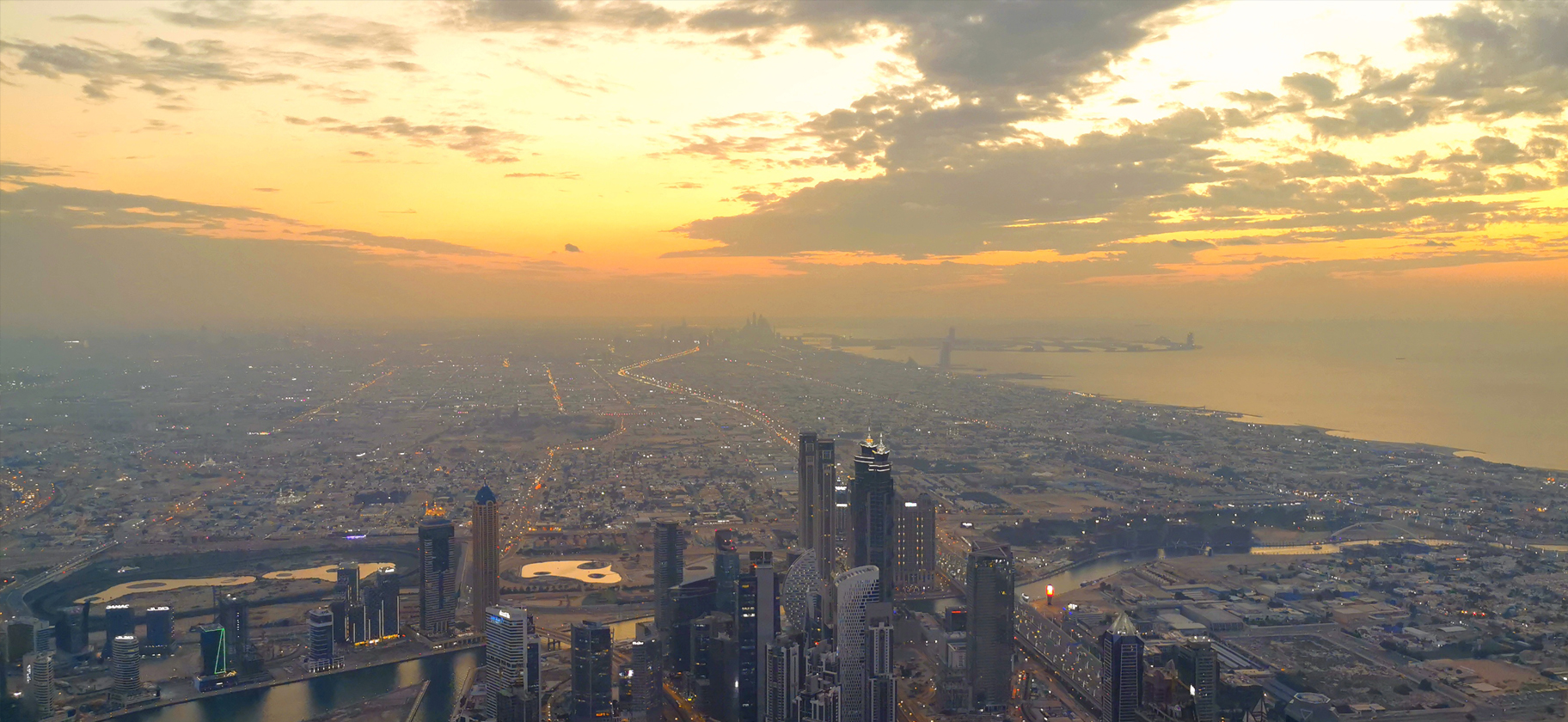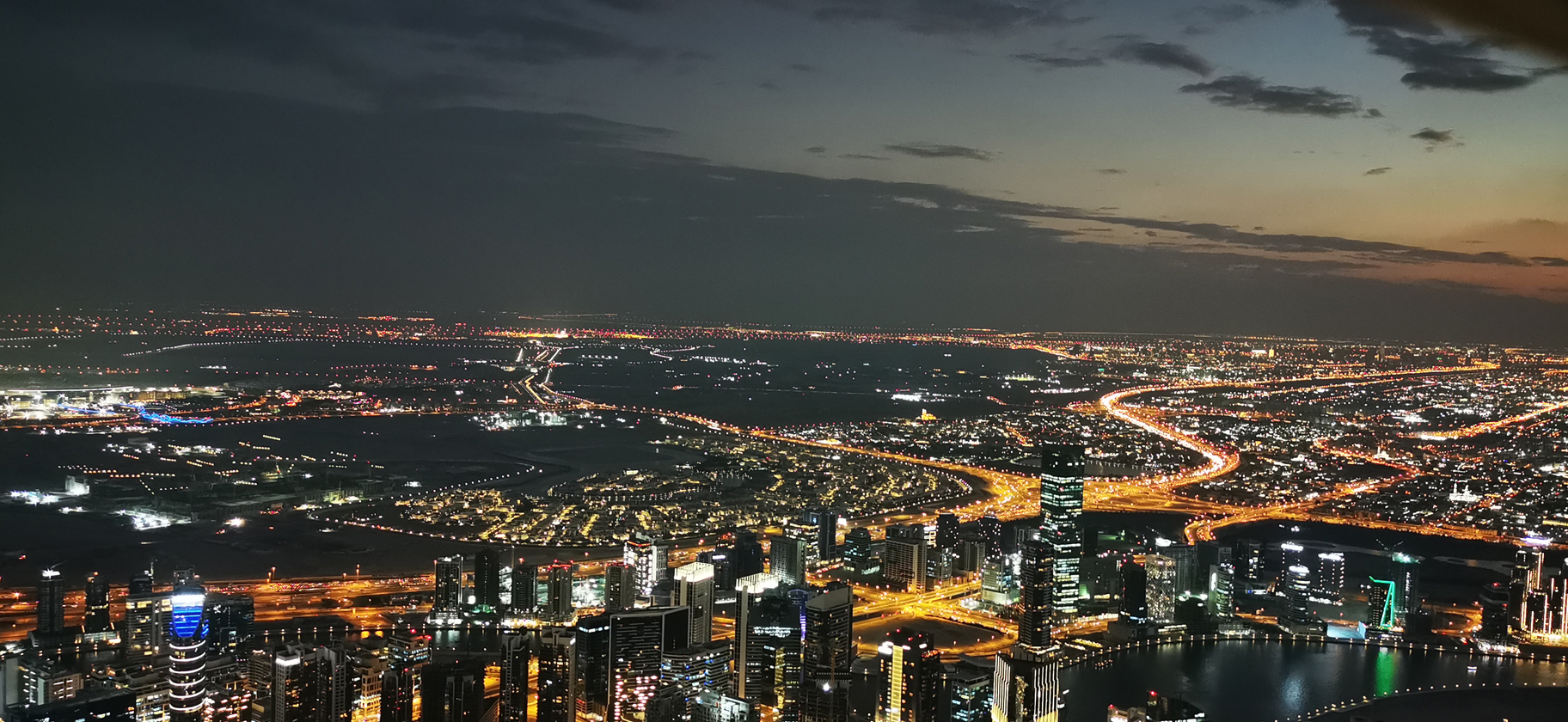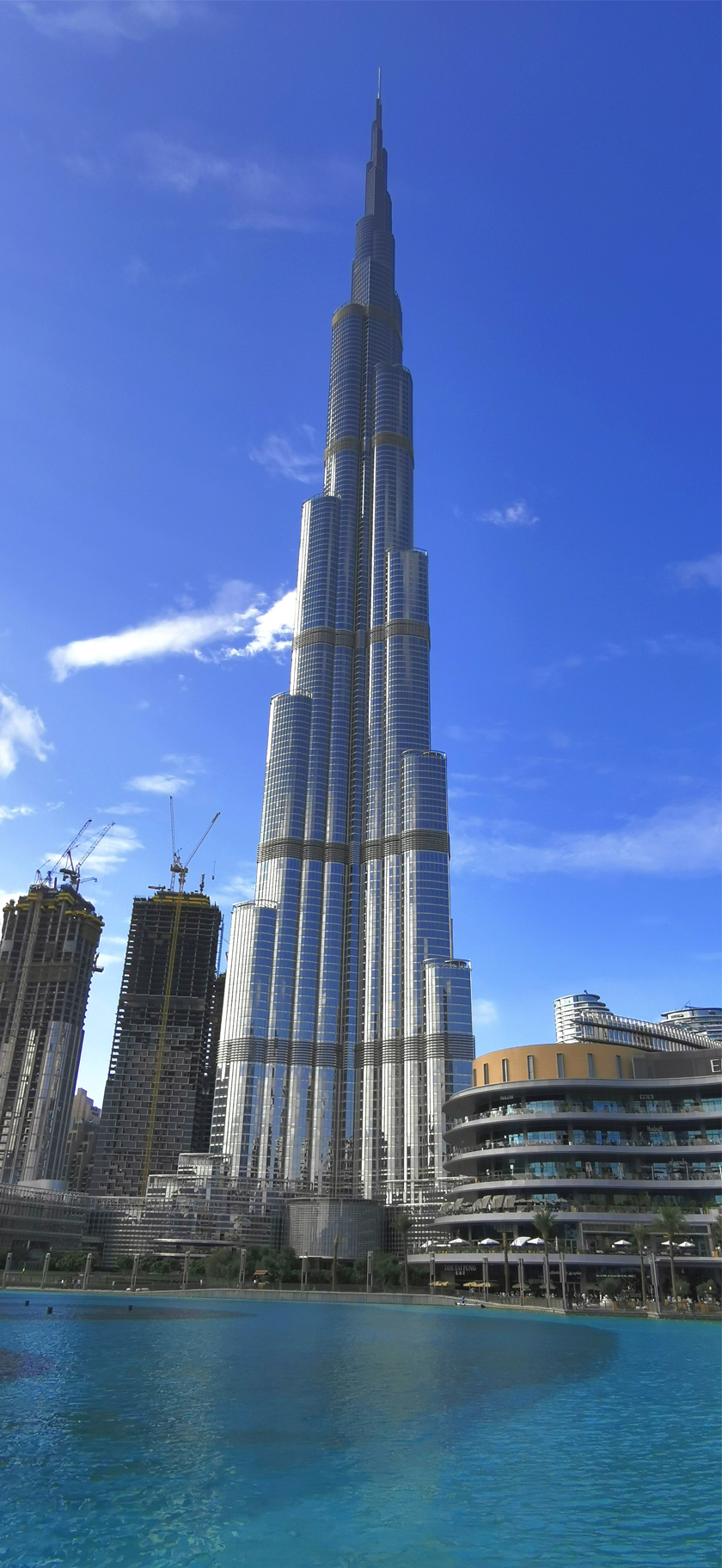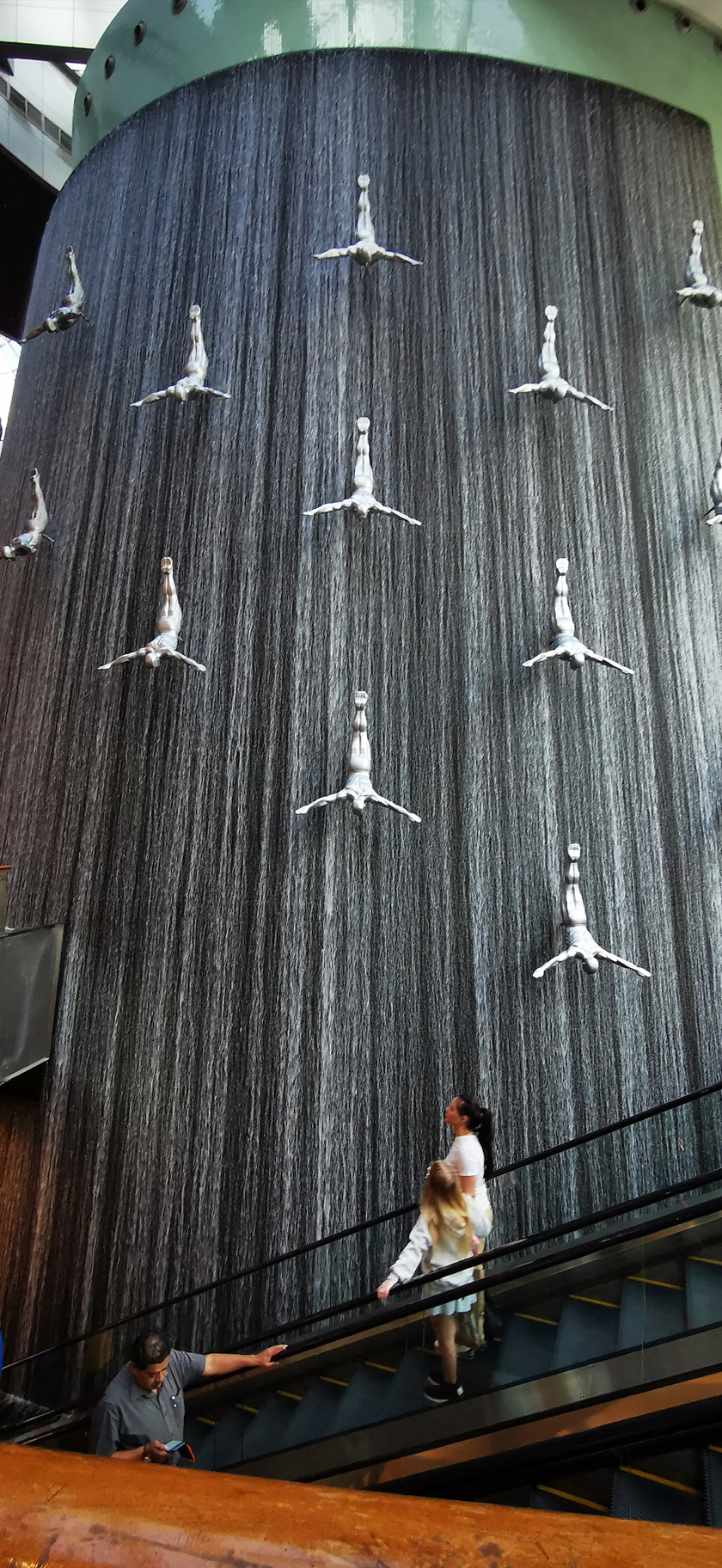Bulawayo to Burj Khalifa

I remember the darkness. Peering out the window of the plane on the redeye from Cairo to Dar es Salaam with the dawn yet to break, the continent below was covered in black but for the faint twinkle of a few homes creating a mirror of the starry night sky above. Flying out of Africa overnight on the flight from Nairobi to Dubai painted a different picture where, as dawn was breaking over this small corner of the Middle East, the sparkle of the sea of lights below was almost brighter than the day.

I had just spent a little over six weeks exploring parts of southern Africa and both long flights into and out of the continent were a reminder of just how vast and inaccessible a place like southern Africa really is. By contrast, over the last several decades, Dubai, in the United Arab Emirates, has become a gateway for the entire world. Its location on the Arabian Peninsula along with its liberal government’s history of stability in an otherwise conservative or unstable region means that anyone who visits is no more than a short 3 to 4-hour flight from Europe or the Far East. Today, Dubai is the launch pad to get just about anywhere and it has developed its infrastructure and its culture to reflect that fact.
I entered the UAE with a few false notions, the first being that, as it was part of the Middle East, it would reflect the same character of the predominantly Muslim countries that I had previously visited like Lebanon, Jordan, Turkey and Egypt. Although Dubai, with its dry desert climate, did retain some similar feelings to those places, the situation with the people on the ground was that Dubai was far more multicultural. Though the unifying cultural characteristic was Islam, the people of Dubai had arrived from shores far outside Arabia and the Middle East. Instead of a homogenous society of Arabs, the people walking the streets and minding the shops were a healthy mix of Indian, Chinese, Filipino and East African.
Another false notion that I had was that life in Dubai would be imbued with that same beautiful chaos that is so characteristic of the Middle East. The enduring images of the Arab world are of the endless sea of clothes and linens and piles of trinkets heaped upon one another in the souks, the incessant trumpeting of car horns, the rising din of the call to prayer emanating from the Mosques on every corner, the cramped feeling of walking the narrow streets and alleys between the buildings that squeeze everyone together, and the cornucopia of scents both fragrant and acrid that combine to assault the senses with horror and beauty. But Dubai is none of those things. In fact, it is the opposite. Instead of beautiful chaos, Dubai can be characterized by the words: order and modernity. The city’s population has swelled by more than 350% in the last 20 years and city planners have managed to fit in all of those extra people, in that short time, with aplomb. Public transit is modern and efficient. Highways are wide and bottlenecks non-existent. Everything runs on time. The spirit of commerce is alive and well, but unlike in most Muslim countries where the heart of city life beats around the souks and the mosque, in Dubai, both have been replaced by the mall.
The city of Dubai is a union of many distinct neighbourhoods each with its own character, but the area known as downtown Dubai is the location of two of Dubai’s most famous and popular landmarks – the Dubai Mall and the Burj Khalifa. Whereas most major cities in the Middle East have grown organically over centuries in the midst of strife, evolving ideas, and constantly shifting ideologies, Dubai, on the other hand, appears to have been built from the ground up in the blink of an eye. The area designated as Dubai’s “Old Quarter”, to the north of the city by the creek, feels manufactured and less like something that has endured for centuries as the city’s cultural and economic centre and more like something designed in a boardroom by the Disney corporation. There are threads of Dubai’s urban life that bear some resemblance to the traditional Arab world coursing through the city and that reflect the values of its neighbours, but they pale by comparison to the grandeur of that one area of the city that is dominated by these two structures that reflect the modern world’s one true religion: capitalism.
 A mixed-use development of private residences, hotels, and corporate suites, the Burj Khalifa today stands as the tallest building in the world. Though rarely ever viewed directly from above, the tower, from overhead, was designed to resemble a desert flower known as hymenocallis. Every day, thousands of visitors ride the elevators – the fastest elevators in the world – ascending to the 124th floor in a single minute, and funnel onto the observation decks to catch a view of the city that now sprawls out along the coastline to the west and into the desert to the east. It’s part of the ‘At the Top’ visiting experience, but other than taking in the view there is not all that much to do at the top unless gift shops are your thing. There are informative panels describing the planning and building of the tower as well as factoids such as the total length of copper wiring, the number of kilowatt-hours used annually to run the air conditioning, and the total weight of all the rebar used during construction. As with any tourist experience these days, there are long waits in queues followed by being herded together in masses of bodies, being led by guides with loudspeakers, and countless security checks. By the time I got to the top, I had already spent a lot of money for the privilege just to get there that I was simply left to wonder whether being able to say that I had been to the top of the world’s tallest building was worth it – but they have to recoup the $1.5 billion spent to build it somehow, I guess.
A mixed-use development of private residences, hotels, and corporate suites, the Burj Khalifa today stands as the tallest building in the world. Though rarely ever viewed directly from above, the tower, from overhead, was designed to resemble a desert flower known as hymenocallis. Every day, thousands of visitors ride the elevators – the fastest elevators in the world – ascending to the 124th floor in a single minute, and funnel onto the observation decks to catch a view of the city that now sprawls out along the coastline to the west and into the desert to the east. It’s part of the ‘At the Top’ visiting experience, but other than taking in the view there is not all that much to do at the top unless gift shops are your thing. There are informative panels describing the planning and building of the tower as well as factoids such as the total length of copper wiring, the number of kilowatt-hours used annually to run the air conditioning, and the total weight of all the rebar used during construction. As with any tourist experience these days, there are long waits in queues followed by being herded together in masses of bodies, being led by guides with loudspeakers, and countless security checks. By the time I got to the top, I had already spent a lot of money for the privilege just to get there that I was simply left to wonder whether being able to say that I had been to the top of the world’s tallest building was worth it – but they have to recoup the $1.5 billion spent to build it somehow, I guess.
Dubai Mall, which opened in 2008, is one of the largest shopping malls in the world and is just one of many megamalls around the city. Besides shops and restaurants, there is a 22-screen cinema, a skating rink, a genuine 24-metre long fossil of a dinosaur, countless fountains and public works of art, an indoor theme park, a haunted house, and the most opulent public bathroom I have ever seen. After 6-weeks in Africa and subjecting the severity of every toilet emergency to scrutiny, at the Dubai Mall I was hunting down laxatives and diuretics simply for the pleasure.
In Africa, the hunt for comfort and modern conveniences was a daily chore, but here in Dubai everything was at my fingertips and, moreover, it was affordable. A suite with a bedroom and living room, a large bed, two televisions, a kitchenette, air conditioning, daily cleaning service, a flush toilet, and a hot shower, reserved for dukes and wealthy businessmen, would have been well out of my price range anywhere I visited in Africa (were such luxuries even available), but, in Dubai, serviced apartment living was going for a very sensible $50 USD per night.
There is something satisfying about having all of the niceties and comforts of modern living as accessible as they are in Dubai and, after six weeks without so many little luxuries, I was relieved to have them all. But it is a satisfaction that wears off quickly. After a few days of achieving thorough cleanliness and a few meals of cuisines from the far-off corners of the world, I began to see the strange shadows of what Dubai has really become and what it seemed to whisper to me about our modern world.
One day while ambling along the streets of an area called Al-Karama I happened upon a crowd outside of a small local pizza shop. In a place with streets so wide and so much open space, it was strange to see such a gathering and I assumed that this tiny hole-in-the-wall must have the best pizza in town. Not wanting to miss out on the opportunity to sample something that had amassed such a loyal following I walked over to inquire how long the wait would likely be to get a slice. But the shop was not actually selling pizza that day, they were hiring. It is one of those things you don’t think of until you see it, but where I come from a small pizza joint like this one would hire a family friend or the most recent CV that got dropped off. But at that moment, on that day, there were about a hundred people all waiting for their chance to be interviewed.
 High-rise luxury apartments and hot cars are a dime a dozen in Dubai and the prepared food aisles in supermarkets put food courts around the world to shame. Walking the corridors of the various malls around town one feels as though one can have just about anything he or she wants. But there is something in all of that wanting that casts a pall over the experience and eventually leaves you feeling empty.
High-rise luxury apartments and hot cars are a dime a dozen in Dubai and the prepared food aisles in supermarkets put food courts around the world to shame. Walking the corridors of the various malls around town one feels as though one can have just about anything he or she wants. But there is something in all of that wanting that casts a pall over the experience and eventually leaves you feeling empty.
In Africa, from city to slum to savanna, I will never forget the sight of so many children. Dampening the noise of the splendour of safari and wriggling free from the clamour and bedlam of city life, it is the forlorn look of resignation on an African child’s face that endures. There is something in that brave stoicism of not having that is their lasting symbol of strength and beauty. Whether sitting calmly under a tree or slung on their mother’s back, smiles seemed rare in Africa, but tears even more so, and walking the mall in Dubai I could not help but notice so many prams. In Dubai, every child able to walk was done up in so many colours with something sugary melting on their lips and face. And then there was that sound, that I had not heard in months, of a child with the energy to scream at the top of its lungs and a parent bending on one knee to meet them eye to eye to ask them what would put a smile on their face.
I had just been introduced to a whole new form of culture shock. By now, I had travelled to so many far-off and strange places that the common feeling of disorientation when presented with new attitudes and new ways of life was part of my programming. But the feeling of that’s the last thing you’d see where I just was, offered me a new angle to explore and examine so many facets of these strange places, and it was in this context of want that the contrast between Dubai and southern Africa was most striking. I had not expected to feel so simultaneously overjoyed at having every pleasure available to me and saddened by so easily succumbing to their temptations.